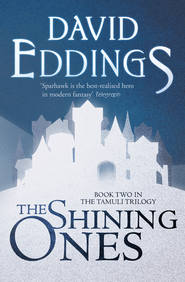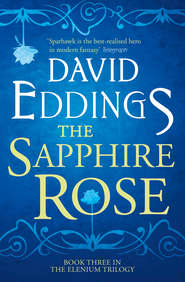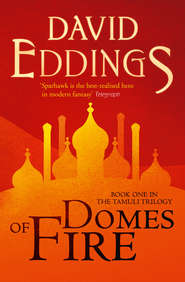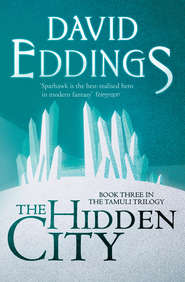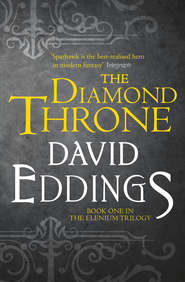По всем вопросам обращайтесь на: info@litportal.ru
(©) 2003-2025.
✖
Regina’s Song
Автор
Год написания книги
2019
Настройки чтения
Размер шрифта
Высота строк
Поля
“It’s full-time, isn’t it?” I replied.
“Of course it is,” he replied sardonically. “A guy who works by the hour paces himself to make the job fit the time. If you bear down, I’ll bet you could finish up in four or five hours a night, and if it starts to pile up, you could clear away the leftovers on Saturday.”
“And if you’re really serious about getting an education, you can live at home and commute to the university,” my mom added. “Your dad and I can’t send you to Harvard, but we can give you a place to live and regular meals. That way, you won’t have to rent an apartment or buy groceries.”
“Our big brother’s going to get away from us after all,” one of the twins lamented in mock sorrow.
“Nothing lasts forever, Twink,” I told her.
“Who’s going to tie our little shoes?” the other twin said.
“Or glove our little hands?” the first girl added.
“You’ll both survive,” I told them. “Be brave and strong and true, and you’ll get by.”
They stuck their tongues out at me in perfect unison.
“This is going to crowd you, Mark,” Les warned me. “You won’t have very much free time. Don’t make the same mistake I made when I went there. I managed to party my way onto the flunk-out list in just two years.” “I’m not big on parties, boss,” I assured him. “Listening to a bunch of half-drunk guys ranting about who’s going to make it to the Rose Bowl doesn’t thrill me. We can give the university a try, I guess, and if it doesn’t work out—ah, well.”
I filled in the gaps on my transcript that summer, and on a bright September morning, I drove down to the University of Washington to register. After I’d plodded through all the bureaucratic nonsense, I wandered the beaten paths to knowledge for a while—long beaten paths, I might add, since the campus measures about a mile in every direction. I finally found Padelford Hall, home of the English Department. After I’d located my classrooms, I drove back to Everett to get to work.
I took a stab at the “full-bore” business the boss had mentioned, and I found that he was right. I cleared everything away in just under five hours. That made me feel better.
Classes began the following Monday, and my first class, American Literature, started at eight-thirty. There was a kind of stricken silence in the classroom when the instructor entered. “It’s Conrad!” I heard a strangled whisper just behind me.
“Good morning, ladies and gentlemen,” the white-haired professor said crisply. “Your regularly scheduled instructor has recently undergone coronary bypass surgery, so I’ll be filling in for him this quarter. For those of you who don’t recognize me, I’m Dr. Ralph Conrad.” He looked round the classroom. “We will now pause to give the more timid time to beat an orderly retreat.”
Now, that’s an unusual way to start a class. I thought he was just kidding around, so I laughed.
“Was it something I said?” he asked me with one raised eyebrow.
“You startled me a bit, sir,” I replied. “Sorry.”
“Perfectly all right, young man,” he said benignly. “Laughter’s good for the soul. Enjoy it while you can.”
I glanced around and saw that fully half the students were grabbing up their books and darting for the door.
Professor Conrad looked at those of us who’d remained. “Brave souls,” he murmured. Then he looked directly at me. “Still with us, young man?” he asked mildly.
His superior attitude was starting to irritate me. “I’m here to learn, Dr. Conrad,” I told him. “I didn’t come here to party or chase girls. You throw, and I’ll catch, and I’ll still be here when the dust settles.”
What a dumb thing that was to say! I soon discovered just how tough he really was. He crowded me, I’ll admit that, but I stuck it out. He was obviously an old-timer who believed in the aristocracy of talent. He despised the term “postmodern,” and he viewed computers as instruments of the devil.
He had his mellower moments, though—fond reminiscences about “the good old days” when the English Department resided in the hallowed, though rickety, Parrington Hall and he was taking graduate courses from legendary professors such as Ebey, Sophus Winther, and E. E. Bostetter.
I maintained my “you throw it and I’ll catch it” pose, and that seemed to earn me a certain grudging respect from the terror of the department. I wouldn’t go so far as to say that I aced the course, but I did manage to squeeze an A out of Dr. Conrad.
I was a bit startled at the beginning of winter quarter when I discovered that I’d been assigned to a new faculty advisor—at his request.
Guess who that was.
“You’ve managed to arouse my curiosity, Mr. Austin,” Dr. Conrad explained, after I rather bluntly asked him why he’d taken the trouble. “Students who work their way through college tend to take career-oriented classes. What possessed you to major in English?”
I shrugged. “I like to read, and if I can get paid for it, so much the better.”
“You plan to teach, then?”
“Probably so—unless I decide to write the Great American Novel.”
“I’ve read your papers, Mr. Austin,” he said dryly. “You’ve got a long way to go if that’s your goal.”
“It beats the hell out of pulling chain, Dr. Conrad.”
“Pulling chain?”
I explained it, and he seemed just a bit awed. “Are you saying that people still do that sort of thing?”
“It’s called ‘working for a living.’ I came here because I don’t wanna do that no more.”
He winced at my double negative.
“Just kidding, boss,” I told him. And I don’t think anybody’d ever called him “boss” before, because he didn’t seem to know how to handle it.
By the end of winter quarter that year I’d pretty well settled into the routine of being a working student. There were times when I ran a little short on sleep, but I could usually catch up on weekends.
I finished up the spring quarter of ‘94 and spent the summer working at the door factory to build up a backlog of cash. Things had been a little tight a few times that year.
The Twinkie Twins were high-school juniors now, and they’d definitely blossomed. Their hair had grown blonder, it seemed—chemically modified, no doubt—and their eyes were an intense blue. They’d also developed some other attributes that attracted lots of attention from their male classmates.
Looking back, I’m sometimes puzzled by my lack of “those kinds of thoughts” about the twins. They were moderately gorgeous, after all—tall, blond, well built, and with strangely compelling eyes. It was probably their plurality that put me off. In my mind they were never individuals. I thought of them as “they,” but never “she.”
From what I heard, though, the young fellows at their high school didn’t have that problem, and the twins were very popular. The only complaint seemed to be that nobody could ever get one of them off by herself.
It was during my senior year at U.W. that I finally came face to face with Moby Dick. The opening line, “Call me Ishmael” and the climactic, “I only am escaped to tell thee” set off all sorts of bells in my head. Captain Ahab awed me. You don’t want to mess around with a guy who could say, “I’d smite the sun if it offended me.” And his obsessive need to avenge himself on the white whale put him in the same class with Hamlet and Othello.
Moby Dick has been plowed and planted over and over by generations of scholars much better than I, though, and I didn’t really feel like chewing old soup for my paper in the course. Dr. Conrad was our instructor, naturally, and I was fairly certain that he’d take a rehash of previous examinations of the book as a personal insult.
Then I came across an interesting bit of information. It seems that when Melville was writing Billy Budd, he kept borrowing Milton’s Paradise Regained from the New York Public Library, and I began to see certain parallels.
Dr. Conrad found that kind of interesting. “I wouldn’t hang your doctoral dissertation on it, Mr. Austin,” he advised, “but you might squeeze an MA thesis out of it.”
“Am I going for an MA, boss?” I asked him.
“You bet your bippie you are,” he told me bluntly.
“Bippie?”
“Isn’t it time for you to get back to Everett and make more doors?” he asked irritably.







